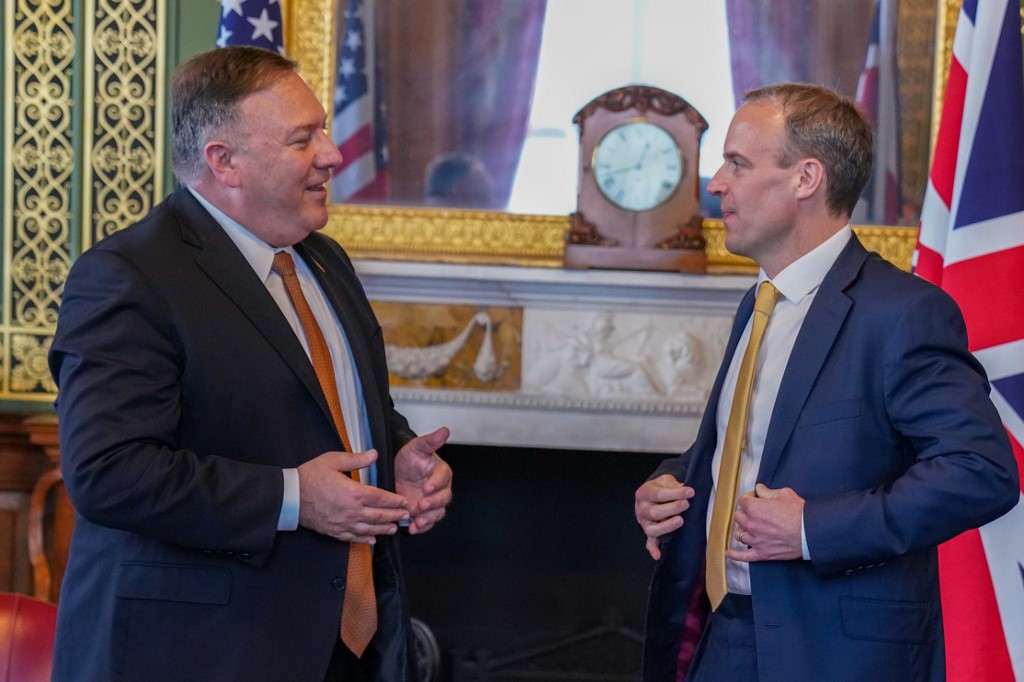(ATF) The People’s Bank of China (PBoC) set central parity for the yuan at 6.9718 to the US dollar this morning, the strongest level in four and a half months.
The US dollar traded at 95.1670 on the dollar index (DXY) at the time.
It jumped to 95.4070 by 4:44pm HK time after it came to be known that the US State Department had given China three days to close its Houston, Texas, consulate “to protect American intellectual property and Americans’ private information.” China promptly vowed to retaliate.
The yuan lost some ground in response and weakened to 7.0125.
A new US-China crisis in the making with negative economic and financial consequences for all concerned?
Quite possible, indeed likely if US Secretary of State Pompeo and British Foreign Secretary Dominic Raab go ahead and execute the US-UK alliance against a “disgraceful” China they vowed to contrive at their July 22 London meeting.
Of course, loathing of China is not the only thing the current US and UK governments have in common. They also have presided over by far the worst outbreaks of the coronavirus pandemic among major developed sector nations.
And, as I have written on several occasions over the past weeks, currencies for now care more about relative competence in governance when dealing with the coronavirus crisis and ability to cope with it economically then then the views of the Pompeo – Raab mutual admiration duo.
READ MORE: Most ATF indices rise; financials lead gains for second day
After showing some momentary safe haven strength, the DXY dropped to 94.9620 by 6:30pm. The yuan regained its footing and traded at 6.9950 at the time.
I see no fundamentals in the hygienic or economic conditions of the Anglo-Saxon anti-China alliance that would translate into a reversal of the near- or longer-term weakening of the US dollar (not to speak of the GBP) and the strengthening of the Chinese yuan.
The US must authorise at least another $1 trillion in emergency spending by July 31 or lapse back into deeper recession.
The UK economy is expected to decline by at least 8% this year, has had to raise GBP128 billion in the three months to June and will need to continue to borrow at that rate to stay afloat.
Currency strength and rapid growth of national debt don’t go well together.
China, meanwhile, emerged from a miserable first quarter of the year by growing 11.5% on quarter in 2Q without massive new debt issuance.
The US dollar is hovering near two-year lows. I expect the yuan to trade in the 6.95-7.00 range in the coming three months.
























